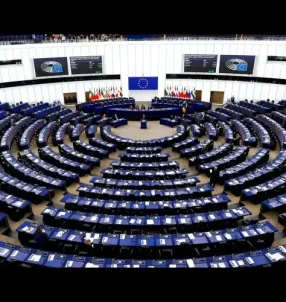New hydrogen-powered trains will replace diesel engines on remote rail lines to cut emissions in some of the most beautiful parts of the country.
The new hydrogen trains – which are due to carry passengers from 2023 – will be deployed on lines such as in the Lake District, where diesel trains take tourists along the 10 mile route to Windermere station from Oxenholme, near Kendal. Another hydrogen train is planned between Shrewsbury and mid-Wales.
The Government is due to release its national hydrogen strategy next month. One Whitehall source said that hydrogen-powered trains were a “low carbon alternative” to diesel because the lines were so difficult to electrify.
An industry source added: “It is the bits of the network where either it is because it is a national park, or it would cost too much to put in the infrastructure, then they will use hydrogen trains, so they don’t ruin the countryside.”
Push to heat homes with hydrogen
Hydrogen has long been seen as one of the more promising clean energies of the future for larger vehicles such as trains, lorries and planes.
Last year, Grant Shapps, the Transport Secretary, was aboard a low-carbon HydroFLEX train for its inaugural journey, along lines between Long Marston, in Warwickshire, and Evesham, Worcestershire.
Electrified trains are effectively carbon neutral if they run on energy from renewable sources.
Hydrogen trains could negate the need for expensive electrification projects as the UK aims to be carbon neutral by 2050.
Ministers have also been funding hydrogen-powered trucks in Glasgow, while capacity for liquefied hydrogen could be found at ports.
A further idea is for entire towns to be built with the homes heated by hydrogen power to see whether it can replace gas in domestic heating. A street of homes in Gateshead was being heated by hydrogen to see if “it can be a commercially viable alternative to gas”, one source said.
Government insiders played down reports last week that the push for hydrogen would result in soaring domestic bills, in part because the roll-out of hydrogen was only very limited.
The strategy will set out plans for a “contracts for difference” scheme for hydrogen. The contracts have been used to bring down the cost of renewable energy. The contract enables the generator to stabilise its revenues at a pre-agreed level for the duration of the contract, which in turn incentivises the market to invest in the new technology.
Critics have warned that it can carry a higher cost for consumers. However, government sources pointed out that every time auctions for the contracts were carried out, the price for the power had fallen, which has meant that offshore wind energy was now 70 per cent cheaper than it was 10 years ago. Over the same period, £47 billion has been invested in offshore wind.
Separately, Lord Lawson of Blaby, a director of the Global Warming Policy Forum, wrote to Boris Johnson, the Prime Minister, warning of “extraordinary” and “highly implausible” costs of “decarbonising the economy”.
Source: Telegraph.co.uk















Leave a comment